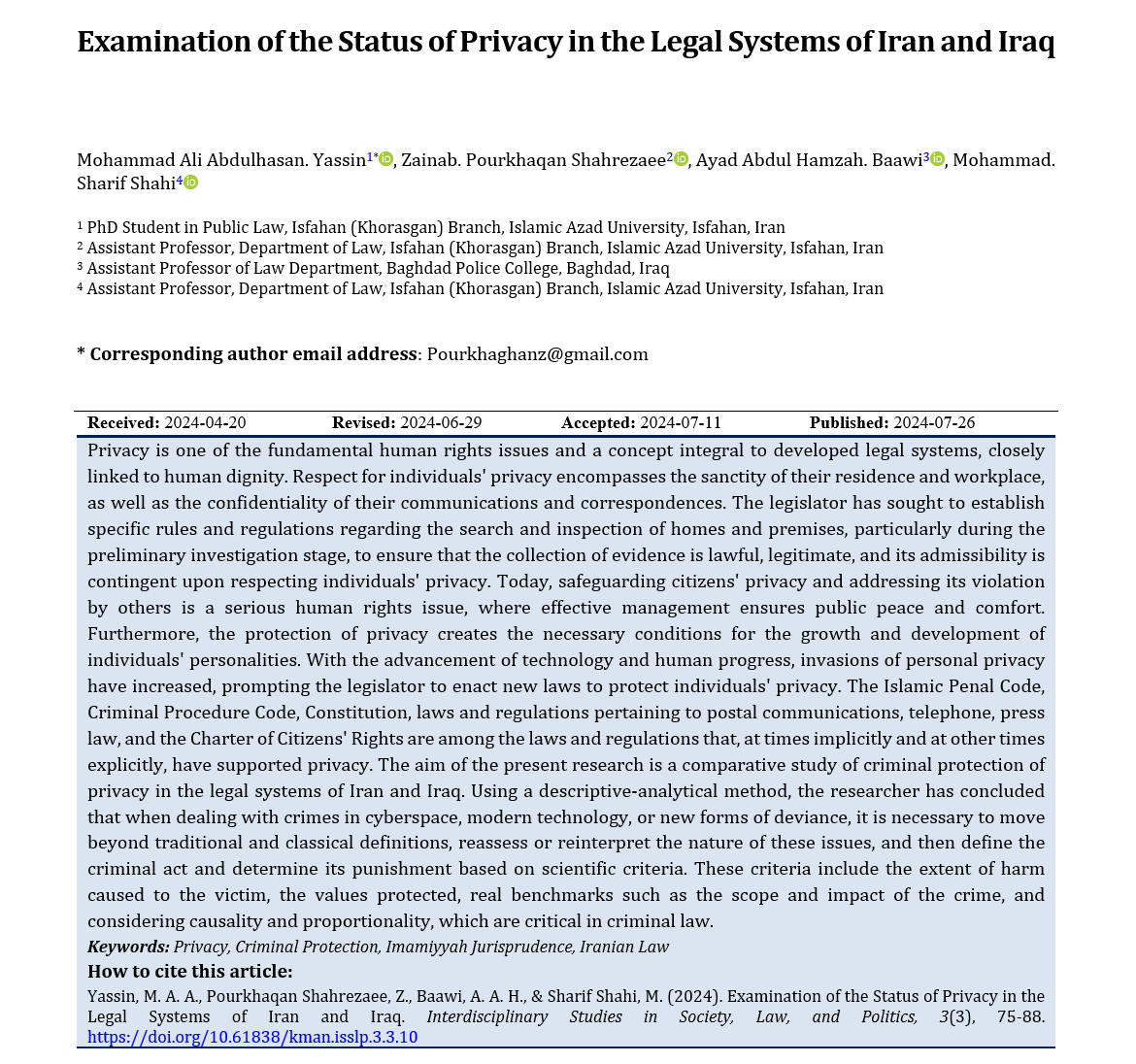Examination of the Status of Privacy in the Legal Systems of Iran and Iraq
Keywords:
Privacy, Criminal Protection, Imamiyyah Jurisprudence, Iranian LawAbstract
Privacy is one of the fundamental human rights issues and a concept integral to developed legal systems, closely linked to human dignity. Respect for individuals' privacy encompasses the sanctity of their residence and workplace, as well as the confidentiality of their communications and correspondences. The legislator has sought to establish specific rules and regulations regarding the search and inspection of homes and premises, particularly during the preliminary investigation stage, to ensure that the collection of evidence is lawful, legitimate, and its admissibility is contingent upon respecting individuals' privacy. Today, safeguarding citizens' privacy and addressing its violation by others is a serious human rights issue, where effective management ensures public peace and comfort. Furthermore, the protection of privacy creates the necessary conditions for the growth and development of individuals' personalities. With the advancement of technology and human progress, invasions of personal privacy have increased, prompting the legislator to enact new laws to protect individuals' privacy. The Islamic Penal Code, Criminal Procedure Code, Constitution, laws and regulations pertaining to postal communications, telephone, press law, and the Charter of Citizens' Rights are among the laws and regulations that, at times implicitly and at other times explicitly, have supported privacy. The aim of the present research is a comparative study of criminal protection of privacy in the legal systems of Iran and Iraq. Using a descriptive-analytical method, the researcher has concluded that when dealing with crimes in cyberspace, modern technology, or new forms of deviance, it is necessary to move beyond traditional and classical definitions, reassess or reinterpret the nature of these issues, and then define the criminal act and determine its punishment based on scientific criteria. These criteria include the extent of harm caused to the victim, the values protected, real benchmarks such as the scope and impact of the crime, and considering causality and proportionality, which are critical in criminal law.
Downloads






